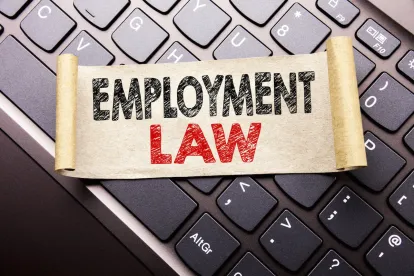Wage Theft Laws
In response to Minnesota’s wage theft law, which we previously reported about here, the city of Minneapolis has passed its own wage theft law, Ordinance No. 2019-031, which will go into effect on January 1, 2020. The law applies to any employee that works for an employer for at least 80 hours per year within the geographic boundaries of the city of Minneapolis. While the ordinance is similar to the state law in many respects, the ordinance goes further by requiring employers to include an employee’s current balance of available sick and safe time hours on all earnings statements. The ordinance also requires the following information to be included on pre-hire notices, in addition to the state law requirements:
-
The date when employment begins;
-
A notice regarding sick and safe time rights;
-
A statement that tip sharing is voluntary under state law (where applicable); and
-
The overtime policy applicable to the employee’s position (if any), including when overtime shall be paid and the applicable rate or rates of pay.
Employers must also provide employees with written notice of changes to the information included in the new hire notice, and the employee must sign the notice, both prior to the date the changes take effect. Employers must keep a copy of each required signed notice or record of electronic signature, for as long as the employee is employed plus an additional three years. The ordinance further establishes a rebuttable presumption that unlawful retaliation against an employee has occurred if an employer, within 90 days of the employee’s exercise of rights under the ordinance, materially changes the terms or conditions of the employee’s employment.
Additionally, on August 6, 2019, New Jersey’s acting governor signed Senate, No. 1790, amending New Jersey’s wage payment laws by providing steep penalties against employers that fail to timely pay their workers their earned wages and benefits. Under the recent amendments, an employee can now seek liquidated damages in an amount of up to two times the wages owed and recoup reasonable attorneys’ fees and costs incurred in litigating a wage theft claim against an employer or former employer. The statute of limitations for commencing an action to recover wages has been significantly extended from two to six years and employers may be held liable under the Act as joint or successor employers.
The Wage Theft Act also further discourages employers from retaliating against employees who report suspected wage theft. The law assumes retaliation if an employer takes adverse action against an employee within 90 days of an individual filing a complaint or instituting an action in court. Further, if an employer is found to owe wages to an employee that is due unpaid wages or wages lost due to the retaliatory action, the employee is permitted to recover the wages owed plus liquidated damages in an additional amount equal to 200% of the unpaid wages, plus reasonable costs of the action and attorney’s fees to the employee. Beyond the added penalties, the Act created a new crime, where a person knowingly commits a crime of a pattern of wage nonpayment if they have been convicted of a violation of certain provisions of the Criminal Justice Code and/or wage and hour laws on two or more occasions.
The majority of the amendments took effect on August 6, 2019. However, the addition of the crime of pattern of non-payment of wages will not take effect until November 1, 2019.
Limits on the Use of Non-Compete Agreements
Effective September 18, 2019, employers in Maine may not use non-competes at all with employees earning less than 400% of the federal poverty level. On June 28, 2019, Maine’s governor signed An Act to Promote Keeping Workers in Maine, requiring employers to follow new advance-notice rules. Before making an offer of employment, an employer must notify the applicant that they will be asked to sign a non-compete and the applicant must receive an actual copy of that document at least three days before they are asked to sign it. Further, non-competes cannot take effect until one year after the employee is hired or six months after the employee signs the agreement, whichever is later.
On May 28, 2019, Maryland enacted the Noncompete and Conflict of Interest Clauses Act, prohibiting the use of non-compete agreements for low wage employees. The Act defines low wage employees as those that earn either equal to or less than $15.00/hour or $31,200 annually. Specifically, the Act prohibits non-compete agreements for covered employees if the non-compete agreement restricts the employee from entering into employment with a new employer or from becoming self-employed in the same or similar business area. The law will take effect on October 1, 2019.
Similarly, on July 10, 2019, New Hampshire’s governor signed Senate Bill 197, prohibiting an employer from requiring an employee who makes 200% of the federal minimum wage ($14.50) to sign a non-compete agreement restricting the employee from working for another employer for a specific period of time or within a specific geographic area. This law took effect on September 8, 2019.
Under a recent amendment to Oregon’s House Bill 2992, for any noncompetition agreement entered into on or after January 1, 2020, an employer may not enforce a non-compete agreement unless it first provides the employee with a signed, written copy of the terms of the non-competition agreement within 30 days after the termination of employment. The law does not apply to confidentiality agreements or to a covenant not to solicit employees or solicit or transact business with customers.
On July 15, 2019, Rhode Island’s governor signed the Rhode Island Noncompetition Agreement Act, which takes effect January 15, 2020, and renders non-compete agreements unenforceable against the following employees:
- An employee who is classified as non-exempt under the Fair Labor Standards Act;
- Undergraduate or graduate students participating in an internship or other short-term employment relationship;
- Employees age 18 or younger; and
- Low-wage employees, defined as individuals earning no more than 250% of the federal-poverty level.
Effective January 1, 2020, non-compete agreements will be unenforceable for employees in Washington earning less than $100,000 in total annualized compensation (not just base salary) or independent contractors earning less than $250,000/year. On May 8, 2019, Washington’s governor signed House Bill 1450, requiring employers to disclose the terms of a non-compete agreement in writing to a prospective employee no later than the time the employee accepts an offer of employment. The law also creates a presumption that non-compete agreements with a restrictive period extending beyond 18 months after the termination of employment are unreasonable and unenforceable.
Employers in these states should review existing agreements for compliance prior to the effective date.





 />i
/>i
